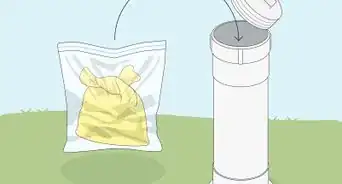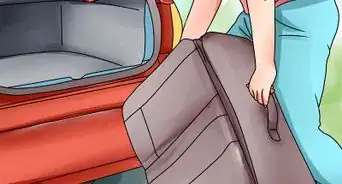wikiHow is a “wiki,” similar to Wikipedia, which means that many of our articles are co-written by multiple authors. To create this article, volunteer authors worked to edit and improve it over time.
There are 13 references cited in this article, which can be found at the bottom of the page.
Learn more...
After a long, hectic day, nothing is better than crawling into your cozy bed, resting your head on a soft pillow, and closing your eyes until…chirp chirp! Suddenly, you’re wide awake, and the only thing you can focus on is the low hum that has somehow transformed into a pulsing sonic boom. While crickets can provide ambiance at the right time, the magic dissipates fast when you’re trying to get some much-needed shut-eye. Worry not! In this article, we’ll provide you with 13 effective solutions ranging from masking the sound to eradicating the crickets completely, so the only chirping you’ll be hearing is from the birds as you get up to meet the day after a great night’s sleep.
Steps
References
- ↑ https://www.nytimes.com/2006/01/31/science/block-that-chirp-volume-control-in-crickets.html
- ↑ https://blogs.cdc.gov/niosh-science-blog/2018/10/24/hearing-protection/
- ↑ https://www.sleepfoundation.org/noise-and-sleep/white-noise
- ↑ https://www.getridofallthings.com/does-vinegar-kill-crickets/
- ↑ https://thebuginator.com/cricket-trap/
- ↑ https://soundproofexpert.com/sound-deadening-curtains/
- ↑ https://www.joyofanimals.com/predators-eat-crickets/
- ↑ https://thepracticalplanter.com/how-to-get-rid-of-crickets-in-garden/
- ↑ https://wildlifeinformer.com/how-to-get-rid-of-cave-crickets/
- ↑ https://entomology.unl.edu/k12/crickets/temperature.htm
- ↑ https://www.angi.com/articles/essential-oils-pest-control.htm
- ↑ https://schoolofbugs.com/do-dead-crickets-attract-other-crickets/
- ↑ https://wildlifeinformer.com/how-to-get-rid-of-cave-crickets/
- ↑ https://housemethod.com/pest/how-to-get-rid-of-crickets/





















































